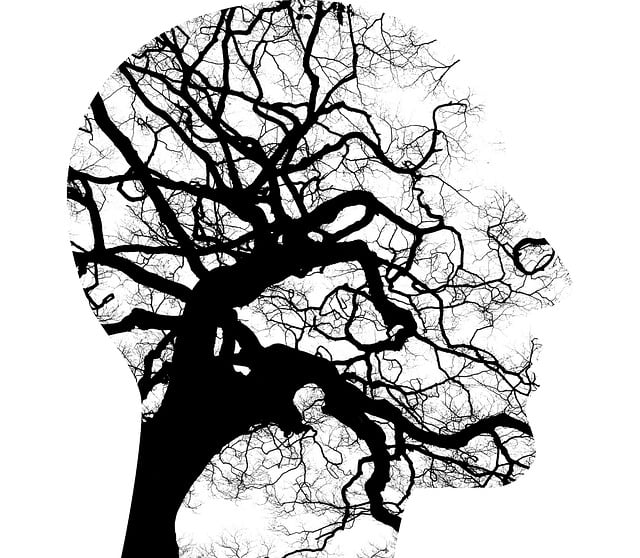In diverse Colorado Springs, cultural sensitivity is vital for effective mental healthcare. Therapists must integrate clients' religious and cultural backgrounds into their practice, creating inclusive spaces that foster open dialogue and improve treatment outcomes. This approach, exemplified by Colorado Springs Christian Counseling Therapy, respects individual beliefs while providing personalized care, reducing burnout among providers, and empowering clients to share their stories. By navigating ethical considerations carefully, this holistic method combines mental health support with spiritual guidance, catering to the unique needs of the community.
“In the diverse landscape of mental healthcare, cultural sensitivity is more than a preference—it’s a cornerstone for effective therapy. This comprehensive guide explores how Colorado Springs Christian Counseling Therapy integrates faith and mental health services, offering tailored approaches for various cultural backgrounds. We delve into the significance of understanding religious and spiritual beliefs, adapting therapies, and navigating ethical considerations to ensure inclusive care. Discover why cultural sensitivity is a game-changer in fostering meaningful healing.”
- Understanding Cultural Sensitivity: A Cornerstone of Effective Therapy
- The Role of Religion and Spirituality in Mental Health Care
- Navigating Diversity: Adapting Therapies for Different Cultural Backgrounds
- Ethical Considerations in Cultural Sensitive Practice
- Colorado Springs Christian Counseling Therapy: Integrating Faith and Mental Healthcare
Understanding Cultural Sensitivity: A Cornerstone of Effective Therapy

In the diverse landscape of Colorado Springs, where a multitude of cultures coexist, cultural sensitivity in mental healthcare becomes an indispensable tool for therapists and counselors. Going beyond basic competence, it’s a cornerstone of effective therapy that ensures every client receives care tailored to their unique background and experiences. Understanding cultural nuances allows practitioners to create safe, inclusive spaces, fostering open dialogue and meaningful connections. This is particularly crucial when serving a community as vibrant and varied as Colorado Springs’ Christian counseling scene.
At the heart of this approach lies a nuanced understanding that mental health issues don’t exist in a vacuum; they are deeply intertwined with cultural beliefs, values, and practices. Therapists who embrace cultural sensitivity integrate these insights into their practice, designing Mental Health Education Programs that are inclusive and relevant. This not only enhances the effectiveness of treatment but also prevents burnout among healthcare providers, who can better navigate complex ethical dilemmas through Burnout Prevention Strategies tailored to diverse populations. A successful therapy session in Colorado Springs Christian Counseling Therapy, for instance, becomes a harmonious symphony of understanding, where clients feel validated, respected, and empowered to share their stories without fear or hesitation.
The Role of Religion and Spirituality in Mental Health Care

In mental healthcare practice, recognizing the intricate interplay between religion and spirituality is paramount, especially in diverse communities like Colorado Springs. Many individuals seek support for their mental health concerns while holding strong to their religious or spiritual beliefs, which can significantly influence their well-being and healing process. Incorporating these aspects into therapy can create a more inclusive and effective treatment environment. For instance, Christian counseling therapy in Colorado Springs has gained popularity as it offers a unique perspective, understanding the patient’s faith as a potential source of inner strength development.
Therapists must be adept at integrating religious and spiritual considerations while conducting risk assessments for mental health professionals. This approach not only respects an individual’s beliefs but also empowers them to confront challenges like depression prevention. By acknowledging the holistic nature of human experiences, healthcare providers can tailor their strategies, ensuring a more personalized and impactful therapy journey.
Navigating Diversity: Adapting Therapies for Different Cultural Backgrounds

In a diverse society like Colorado Springs, where individuals from various cultural backgrounds coexist, it’s imperative that mental healthcare practices reflect this diversity. Navigating diversity in therapy involves understanding and adapting therapeutic approaches to meet the unique needs of clients from different ethnic, religious, and cultural groups. For instance, a client from a Christian background might require a therapist who shares similar values or can provide counseling that aligns with their faith. This personalized approach not only enhances the therapeutic relationship but also increases the likelihood of successful treatment outcomes.
Professionals in Colorado Springs Christian Counseling Therapy must be adept at building empathy and cultivating an inclusive environment. Risk Management Planning for Mental Health Professionals plays a crucial role here, ensuring therapists are equipped to handle cultural sensitivities while mitigating potential risks. Additionally, Public Awareness Campaigns Development can help educate both professionals and the public about the importance of culturally competent care. Through these strategies, mental healthcare services can become more accessible and effective for all individuals, regardless of their cultural background.
Ethical Considerations in Cultural Sensitive Practice

When engaging in mental healthcare practice with a cultural sensitivity focus, especially in diverse communities like Colorado Springs, ethical considerations are paramount. Therapists must navigate complex issues to ensure respect for clients’ cultural beliefs and values while maintaining professional boundaries. This delicate balance is crucial to foster trust and create a safe space for healing.
For instance, therapists offering Christian counseling in Colorado Springs must be mindful of their own biases and ensure the approach aligns with the client’s faith-based framework. This might involve integrating spiritual practices like mindfulness meditation or incorporating social skills training tailored to cultural norms. The goal is to enhance the therapeutic experience, promote self-acceptance, and build confidence, all while respecting individual differences, ensuring ethical conduct throughout the process.
Colorado Springs Christian Counseling Therapy: Integrating Faith and Mental Healthcare

In Colorado Springs, Christian Counseling Therapy offers a unique approach to mental healthcare by seamlessly integrating faith and therapeutic practices. This specialized form of counseling recognizes the profound impact that spiritual beliefs can have on an individual’s emotional well-being and overall healing process. Many people in Colorado Springs seek this type of therapy to address various challenges, from managing stress and anxiety to processing traumatic experiences, all while aligning their mental health journey with their Christian values.
The therapists at these centers are not only trained professionals but also individuals who understand the power of faith as a tool for emotional healing processes. They facilitate self-awareness exercises tailored to the client’s specific needs, encouraging them to explore their beliefs and how they influence their thoughts and behaviors. This holistic approach goes beyond traditional therapy techniques, incorporating spiritual guidance and biblical principles into the treatment plan. By doing so, clients can experience profound personal growth while maintaining their commitment to their faith, making it a popular choice for those seeking both mental healthcare and spiritual support in Colorado Springs.
Cultural sensitivity is an indispensable aspect of mental healthcare, ensuring that therapeutic practices are inclusive and effective for individuals from diverse backgrounds. As demonstrated by Colorado Springs Christian Counseling Therapy, integrating faith and cultural considerations can significantly enhance patient care. By understanding religious beliefs, adapting therapy to different cultures, and addressing ethical guidelines, mental health professionals can provide more personalized and compassionate services. This approach not only respects patients’ identities but also fosters a deeper sense of trust and improved outcomes in the therapeutic journey.














